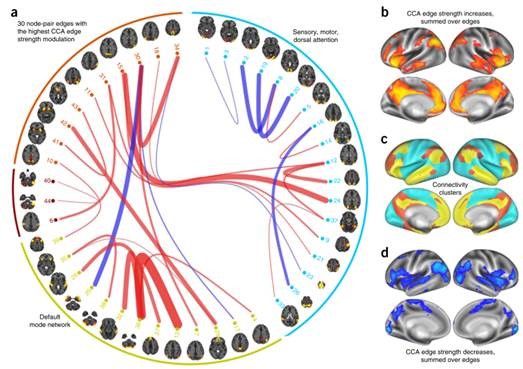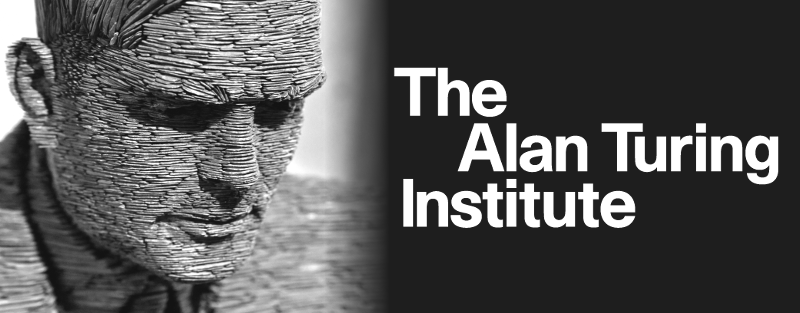WDSI News
Please send text and images for new WDSI news items to <wdsi dot enquiries at warwick dot ac dot uk>.
Can fundamental life factors explain differences in how our brains are connected?
Research by Professor Tom Nichols and colleagues has been featured in the papers with headlines like "Intelligent people's brains are wired differently" (Daily Mail, 28 Sept.). The research is based on unique data from Human Connectome Project (HCP), a collaboration with researchers in Oxford University and Washington University in St. Louis. The HCP data has produced MRI data with high temporal and spatial resolution, specifically tailored to image the connections between different brain regions. In this project, they used 461 subjects to find associations between brain connectivity and over 280 behavioural, health and demographic factors. A single factor with a clear positive vs. negative axis of life factors was found to correlate with functional MRI connectivity. Factors like memory, vocabulary, life satisfaction and being well-educated weighed against factors like substance use, poor sleep quality and anger-aggression scores. While many reports in the press have implied a causal link between "happiness" and how the brain is "wired", the current observational study doesn't justify these conclusions.
Reference:
Smith, S. M., Nichols, T. E., Vidaurre, D., Winkler, A. M., Behrens, T. E. J., Glasser, M. F., Ugurbil, K., Barch, D.M., Van Essen, D.C., Miller, K. L. (2015). A positive-negative mode of population covariation links brain connectivity, demographics and behavior. Nature Neuroscience, (September), 1–7. doi:10.1038/nn.4125
An interview with Professor Nichols covering this subject can be found here.
Illustration:

Older WDSI news items:
- Professor Andrew Blake to be the first Institute Director of The Alan Turing Institute (August 2015)
- BSc in Data Science featured by Bloomberg (June 2015)
- Election exit poll: Not quite 'spot on' this time, but another triumph for statistical methods! (May 2015)
- Warwick selected as one of the founding members of the Alan Turing Institute for Data Science (January 2015)

